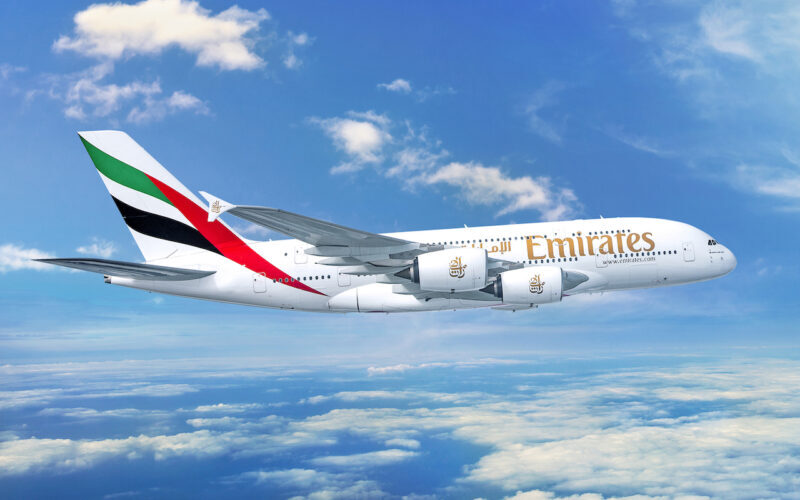Emirates’ President Calls for Airbus A380neo with 25% Fuel Reduction

Emirates Airline’s President, Sir Tim Clark speaking at the Paris Air Forum on June 16, reiterates his advocacy for Airbus to revamp the A380 with next-generation engines, projecting a substantial increase in fuel efficiency of up to 25%.
The Need for a More Efficient A380
Clark emphasizes that the engines currently powering Emirates’ A380 fleet, the Engine Alliance GP7200 and Rolls-Royce Trent 900, were designed in the 1990s. He sees the potential for significant performance improvement with the introduction of engines like the Rolls-Royce UltraFan.
Clark’s push for a more efficient A380 goes beyond financial considerations; it aims to make air travel more sustainable. As the aviation industry faces growing pressure to reduce carbon emissions, a 25% decrease in fuel burn and emissions would be a significant step forward.
The Potential of Rolls-Royce UltraFan
Rolls-Royce successfully ran its UltraFan demonstrator for the first time on April 24. The company believes this architecture could power future single- and twin-aisle aircraft requiring thrust ranging from 25,000lb to 100,000lb. In comparison, the Trent 900 is rated at 84,000lb.
Clark believes that an A380 equipped with UltraFan engines would bring a substantial improvement in fuel efficiency. This isn’t just about enhancing the A380’s performance but also setting a new industry standard.
The Rolls-Royce UltraFan demonstrator
Rolls-Royce has achieved a significant milestone with the successful completion of initial tests for its UltraFan technology demonstrator. The UltraFan is a groundbreaking engine technology developed by Rolls-Royce, aiming to provide a 25% improvement in fuel efficiency compared to the first generation of Trent engines. It also offers a 10% efficiency boost over the Trent XWB, currently recognized as one of the most efficient large aero engines in service.
The UltraFan boasts impressive features, including a fan diameter of 140 inches, making it the largest aircraft engine ever constructed. The engine incorporates innovative architecture, fan system technology, and new materials, resulting in a high bypass ratio engine that delivers exceptional efficiency and sustainability.
Notably, the tests were conducted using 100% Sustainable Aviation Fuel (SAF), which can significantly reduce carbon emissions compared to conventional jet fuel. Moreover, the UltraFan is designed to be compatible with hybrid-electric and hydrogen power solutions, demonstrating Rolls-Royce’s commitment to exploring alternative fuel options.
The A380’s Popularity and Future
Clark highlights the continued popularity of the A380 among passengers. Currently, Emirates has 87 out of its 116-strong fleet in service, operating at an 82% load factor. Despite recent challenges faced by the aviation industry, the A380 remains a favorite among travelers.
However, Clark’s calls for an A380neo with new engines have been met with resistance from Airbus. Despite this, he remains optimistic, believing that the A380neo, with the right engine, could revolutionize the aviation industry.
Sources: AirGuide Business airguide.info, Airbus, aviationforaviators.com, flightglobal.com
